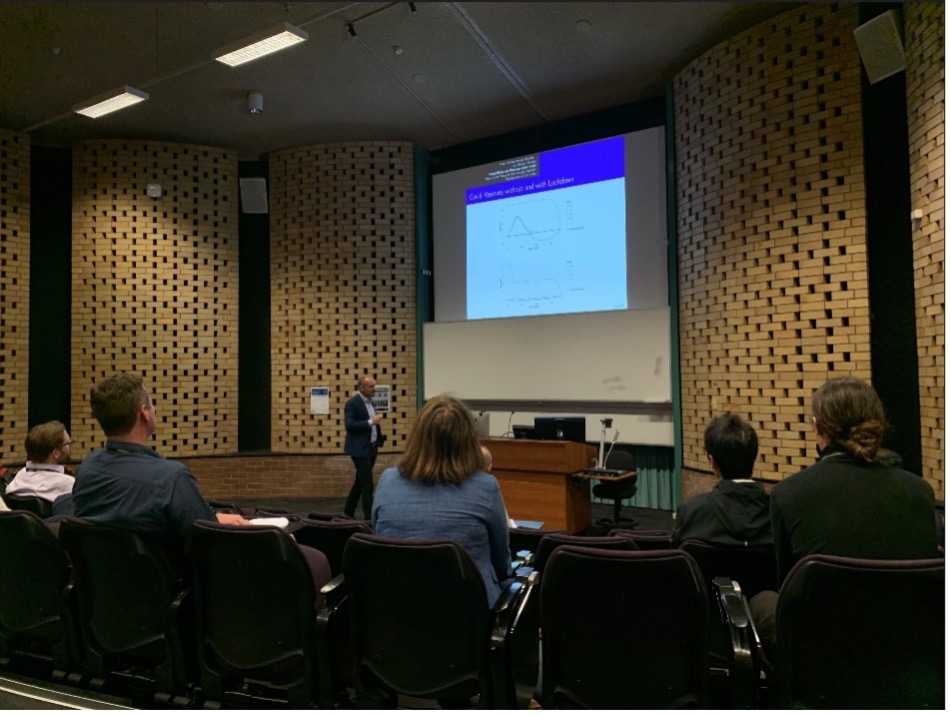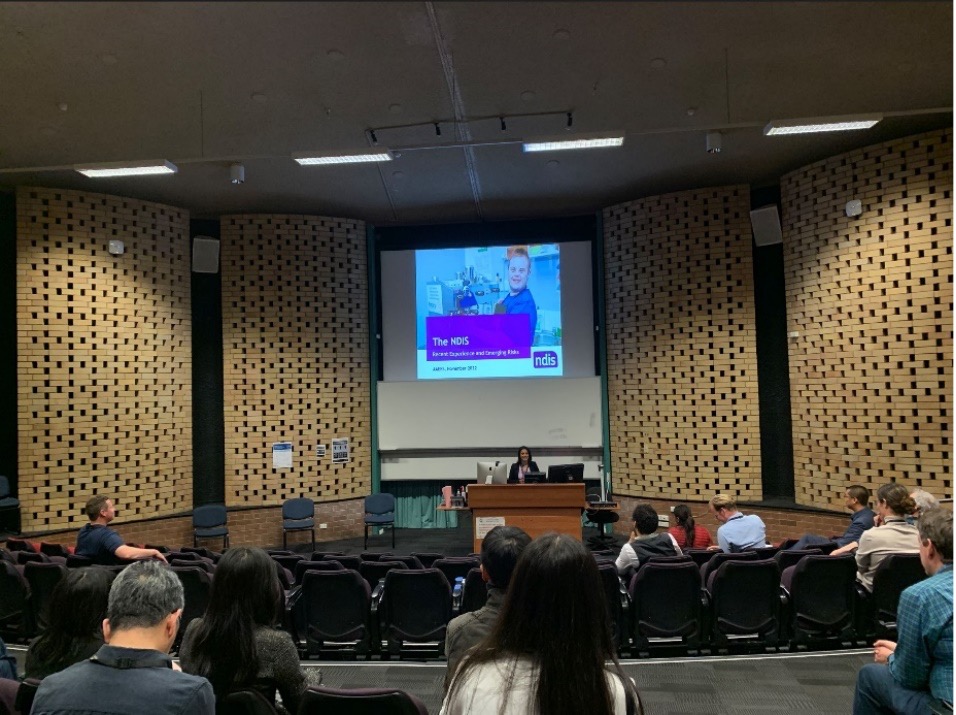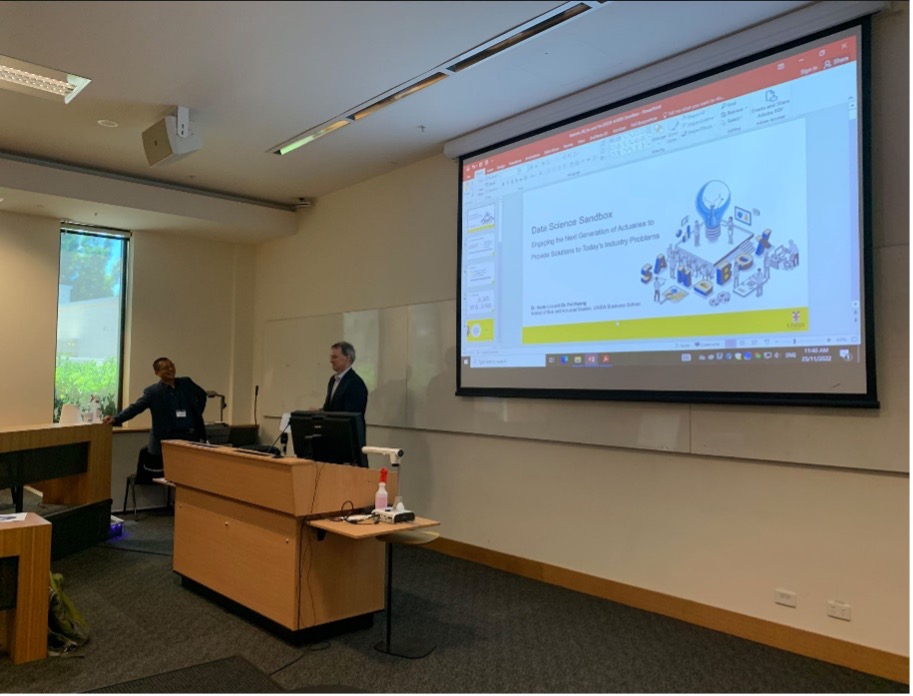
Australasian Actuarial Education and Research Symposium 2022
The Australasian Actuarial Education and Research Symposium (AAERS) is an annual international actuarial conference that brings together researchers, educators, industry practitioners and research students worldwide to share their research and education. Here’s a recap of what happened at the 2022 AAERS.
Hosted in Canberra by the Australian National University (ANU) College of Business and Economics – Research School of Finance, Actuarial Studies and Statistics, AAERS 2022 attracted more than 70 participants from academia, industry and government. The two-day in-person symposium featured four plenary speakers and over 30 concurrent presentations, and a panel discussion on actuarial education.
Plenary sessions
Bridget began by sharing the key findings from the financial report on the Australian Aged Care Sector in 2020-21, lessons from the Royal Commission into Quality and Safety in Aged Care and how aged care services are currently funded. Bridget explained the financing design principles and aged care needs and proposed a hypothecated aged care levy. Different scenarios create different results which is why Bridget explored the different scopes of aged care services. Bridget wrapped up by emphasising the role of the actuarial control cycle in various aspects of designing and implementing the financing options.

(Professor Mogens Steffensen presenting at AAERS 2022)
Mogens Steffensen, a professor of life insurance mathematics at the University of Copenhagen, presented the second plenary session on Contemporary Life. Mogens first discussed the deterministic compartment models widely used biology and epidemiology and their link to the familiar multi-state models. The multi-state model is then extended to allow for epidemic effects, with which he demonstrated the counterfactuals of mortality and infection rates of COVID with and without lockdown restrictions.
Opening the third plenary session was Guy Thorburn, an Australian Government Actuary, who discussed his topic, Cyclone Reinsurance Pool. Guy began his talk with the scheme design, including the cyclone insurance’s history in Australia, the legislative obligations, the key design features and the scheme coverage. Guy walked the participants through the key considerations for setting the premium rates and the catastrophe models of the cyclone reinsurance pool. Guy emphasised the importance of governance and the control cycle in ensuring the sustainability of the scheme.

(Figure 2 – Jananie William introducing Maathu Ranjan at AAERS 2022)
Maathu Ranjan from the National Disability Insurance Agency (NDIA) presented the last plenary on the Recent Experience and Emerging Risks of the National Disability Insurance Scheme (NDIS). Maathu introduced the NDIS and discussed the recent experience of NDIS, including the participants’ experience and outcomes. Maathu also shared the factors driving the higher average plan budget and the increasing number of participants.
Concurrent sessions
In between the plenary sessions were four concurrent sessions that featured over 30 speakers from academia and industry, including some research students. The symposium attracted a great variety of research areas, including retirement, risk modelling, mortality modelling, statistical modelling, and other topics in insurance and annuities.

(Kevin Liu and Aaron Bruhn in a concurrent session at AAERS 2022)
Education sessions
The symposium concluded with two education sessions.
The first presentation, presented by Moz Ali, Amanda Aitken and Zachary Tirrell from the Actuaries Institute, provided an update on the refreshing of the Actuaries Institute’s Education Program and feedback from students regarding their experience.
The second session, chaired by Adam Butt, saw discussants Amanda Aitken, Kevin Liu, and Jo-Anne Morgan discuss academic integrity of online examinations, the design of assessment structures, and ensuring consistency across exemption subjects offered by accredited universities.
In summary, the symposium featured various plenary speakers with different backgrounds, including industry and academia, coming together to share their experiences and insights on a range of topics while emphasising government advice given that the conference is Canberra-based.
Additionally, the symposium received excellent feedback from attendees, as many appreciated the opportunity to meet with domestic and international colleagues for the first time in nearly three years.
CPD: Actuaries Institute Members can claim two CPD points for every hour of reading articles on Actuaries Digital.






